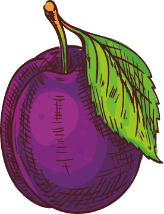
Bulk Milk
Milk cartons and bottles — as well as discarded milk — are the biggest source of school food waste.
Our Bulk Milk program helps schools transition from serving milk in single-serve containers to serving milk using bulk dispensers and reusable cups. Plus, milk tastes better and stays fresh longer when served in bulk!

Bulk Milk
Milk cartons and bottles — as well as discarded milk — are the biggest source of school food waste.
Our Bulk Milk program helps schools transition from serving milk in single-serve containers to serving milk using bulk dispensers and reusable cups. Plus, milk tastes better and stays fresh longer when served in bulk!
For schools
If you represent a school or district, join our Bulk Milk interest list to get notified when the next round of grant applications open in spring 2026.
About
Bulk Milk helps schools make their meal programs more environmentally sustainable — and more delicious.
Schools are required by the U.S. Department of Agriculture to offer students milk with every lunch or breakfast they serve. Most schools today serve milk in disposable cartons or plastic bottles. With 31+ million lunches and 13+ million breakfasts served every single school day, year after year, milk packaging and discarded milk is one of the biggest sources of waste generated by school food programs.
Bulk Milk grants schools across the country nearly everything they need to transition from serving milk in single-use cartons or bottles to serving milk in bulk. This includes bulk milk dispensers, staff training, marketing materials, and technical assistance.
Serving milk in bulk not only lets schools drastically cut waste, it keeps milk colder and fresher longer. Kids consistently report milk tastes better when its served in bulk!
This program was made possible thanks to the generous support of our partners at the Posner Foundation, Life Time Foundation, and Elevance Health Foundation.


About
Bulk Milk helps schools make their meal programs more environmentally sustainable — and more delicious.
Schools are required by the U.S. Department of Agriculture to offer students milk with every lunch or breakfast they serve. Most schools today serve milk in disposable cartons or plastic bottles. With 31+ million lunches and 13+ million breakfasts served every single school day, year after year, milk packaging and discarded milk is one of the biggest sources of waste generated by school food programs.
Bulk Milk grants schools across the country nearly everything they need to transition from serving milk in single-use cartons or bottles to serving milk in bulk. This includes bulk milk dispensers, staff training, marketing materials, and technical assistance.
Serving milk in bulk not only lets schools drastically cut waste, it keeps milk colder and fresher longer. Kids consistently report milk tastes better when its served in bulk!
This program was made possible thanks to the generous support of our partners at the Posner Foundation, Life Time Foundation, and Elevance Health Foundation.
What really surprised me about the [bulk] milk dispenser project was all of the younger kids and their ability to adapt so quickly… They LOVE having it there.
Program ImpactSince 2023 |
95
Bulk milk dispensers installed in 38 school districts in 16 states |
Program ImpactSince 2023 |
|
95
Bulk milk dispensers installed in 38 school districts in 16 states |
Grantees
Alaska: Petersburg School District • Arizona: St. Michael Indian School • California: Pajaro Valley Unified School District; Los Gatos Union School District; Tahoe Truckee Unified School District; Willows Unified School District; Ocean View School District; San Lorenzo Valley Unified School District; Shady Creek Outdoor School; Santa Clara Unified School District; Alameda Unified School District; Albany Unified School District; Castro Valley Unified School District; Nevada County School Food Services Agency; Fremont Unified School District • Colorado: Durango School District; Greeley-Evans School District 6; Hanover School District No. 28; Lake County School District R-1; Weld County School District; Colorado Charter School Institute • Maryland: Caroline County Public Schools • Minnesota: Cannon Falls Independent School District; Minneapolis Public School District • Mississippi: Jackson Public Schools • New Mexico: Explore Academy Charter School • New York: Ithaca City School District; Dryden Central School District; Groton Central School District • North Dakota: Towner-Granville-Upham School District • Pennsylvania: Ephrata Area School District • Tennessee: Trenton Special School District; Franklin Special School District • Texas: Austin Independent School District • Vermont: Windham Central Supervisory Union • Virginia: Suffolk Public School District; Prince Edward School District • Wisconsin: Wisconsin Rapids Public Schools
Get Involved
Schools
Learn more about Bulk Milk on The Lunch Box, our website and free resource library for schools.
You can also subscribe to our Bulk Milk interest list to get notified when the next round of grant packages become available.
Supporters
Are you interested in partnering with us to support Bulk Milk grant packages? You can help more schools cut their biggest source of food and packaging waste. Contact our Foundation Relationship Manager Tracey O’Donohue at tracey.odonohue@chefannfoundation.org to learn more.


Get Involved
Schools
Learn more about Bulk Milk on The Lunch Box, our website and free resource library for schools.
You can also subscribe to our Bulk Milk interest list to get notified when the next round of grant packages become available.
Supporters
Are you interested in partnering with us to support Bulk Milk grant packages? You can help more schools cut their biggest source of food and packaging waste. Contact our Foundation Relationship Manager Tracey O’Donohue at tracey.odonohue@chefannfoundation.org to learn more.
Special Thanks to Our Partners
Discover More







